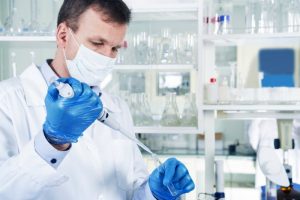 The average person comes into contact with many substances throughout the day. This includes the foods they eat, but it also refers to certain treatments they may receive, whether they are medical or dental in nature. Some of the materials used in dentistry have unique properties that the human body can negatively react to, which is why it’s important to perform compatibility testing. If this is your first time learning about this sort of test, you’ll want to keep reading this post from a holistic dentist in Beachwood!
The average person comes into contact with many substances throughout the day. This includes the foods they eat, but it also refers to certain treatments they may receive, whether they are medical or dental in nature. Some of the materials used in dentistry have unique properties that the human body can negatively react to, which is why it’s important to perform compatibility testing. If this is your first time learning about this sort of test, you’ll want to keep reading this post from a holistic dentist in Beachwood!
What Is The Clifford Material Reactivity Test (CMRT)?
Human beings can be allergic or negatively react to certain materials, whether they are organic or inorganic in nature. While these materials can affect people in varying degrees, it’s important to know which materials, as well as their potentially corrosive byproducts, are toxic or hazardous to patients. In some cases, they can lead to serious health problems. Keep in mind that different people can react to different materials. In some cases, there may be no reaction whatsoever. In other cases, the problems could be more severe.
The Clifford Materials Reactivity Test is designed to help dental professionals better understand the needs of their patients. This laboratory screening test confirms existing sensitivity problems to certain chemical groups in patients.
In summary, if at any point certain materials are being used in a dental treatment (such as a filling, crown, or dental implant), dentists will want to confirm if that product’s materials (or potentially corrosive byproducts of that material) have the potential to cause damage to or negatively affect your oral or overall health.
When Should You Receive a Test?
If a holistic dentist is performing a treatment for a patient, biocompatibility test screenings like the Clifford Material Reactivity Test can provide both dentists and medical doctors with extensive information about the patient’s sensitivities. This way, materials that could potentially cause harm are avoided and instead replaced with materials that the patient can safely receive.
For example, if a patient has a sensitivity to metal fillings, a dentist can make sure that only metal-free composite resin is used instead. If you plan on receiving any type of restorative or tooth replacement treatment, this test is likely for you.
How Does the Test Work?
The CMRT, which is a blood test, does not require the patient to perform any fasting or alterations of their diet prior to it being completed. If working with a dentist, they will partner with a physician to have the blood test completed. The results will then be sent to the dentist so they can more effectively create a treatment plan.
When you have peace of mind over the materials being used to resolve your dental concerns, you’re getting a clearer picture of how those materials can affect your oral and overall health. If you’re still unsure if the test is right for you, consider speaking to a holistic dentist today!
About the Author
Dr. Benjamin Hornstein recognizes that over 5000 different materials are used in dentistry alone. As a holistic dentist, he understands the potential reactions the human body’s immune system can have to certain dental biomaterials. That’s why he recommends the CMRT for his patients. To receive your next test or learn more about his practice, you can contact him through his website.
